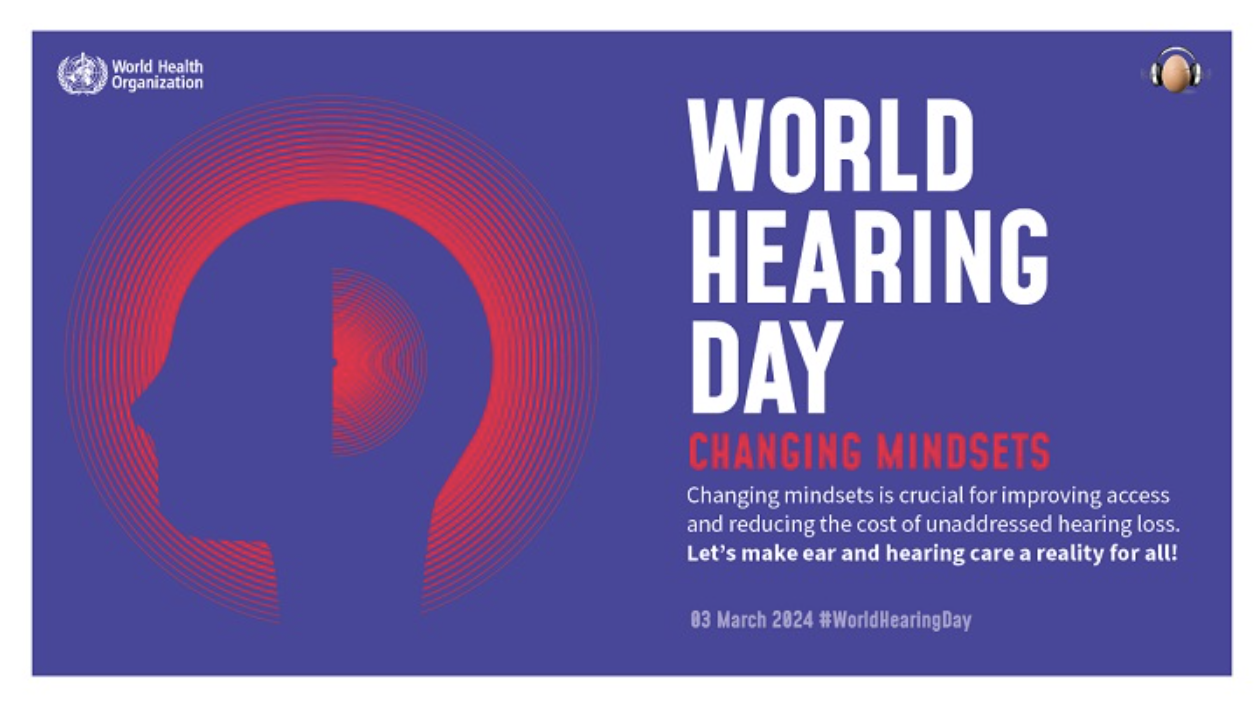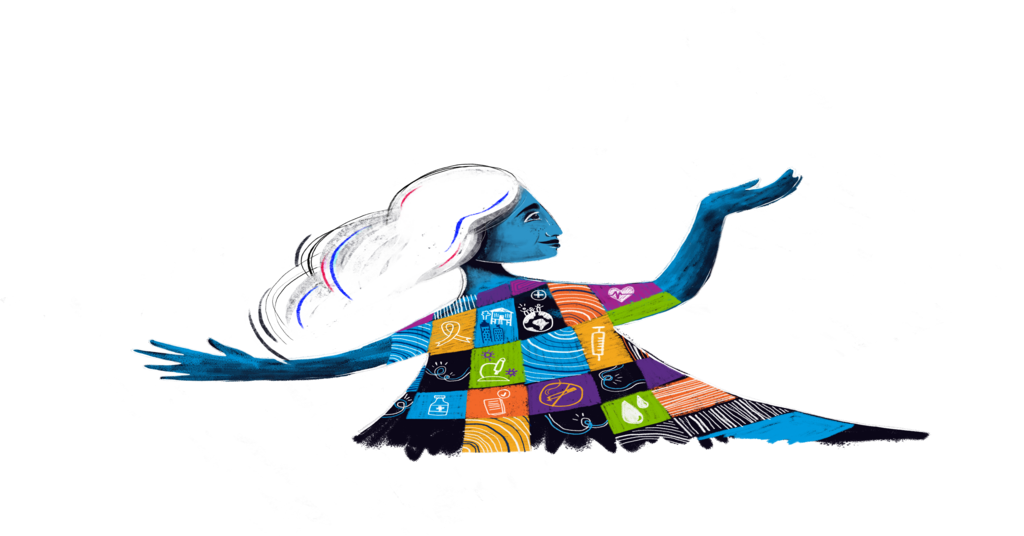
Tips for using public transportation with hearing loss
December 14, 2018
Microsoft, Skype, and Alexa aim to be more accessible to the deaf
December 19, 2018Meet Phonak Teen Advisor Madeline

To this day it is still unknown if I was born with a hearing loss. To this day it does not matter the cause of my hearing loss since regardless, it is a part of who I am.
I have a mild to moderately severe, sensorineural hearing loss and wear hearing aids in both ears. When I was diagnosed, I was almost three years old.
I was behind in speech and attending speech therapy when I received a hearing test. When the results came back that I had a hearing loss, it came as an icy shock for my parents. They previously were reassured repeatedly by professionals that I probably would not have a hearing loss. From that day on I wore hearing aids.
Going off to university
Once I reached university last year, I faced the center and most difficult challenges that I am currently still overcoming. It has been extremely challenging to get the accommodations I need. I’m expected to find a solution to problems in school that are also problems in my everyday life.
The nightmare of finding the appropriate accommodations for tutorials, group discussions, graded participation would be manageable with some changes and hearing loss awareness. It is important for universities to understand the added stress of sorting out accommodations while deciding which education path to take. There really is no solution that works 100 percent. Also, the invisible nature of hearing loss makes it difficult for people to understand why accommodations are crucial for me. Especially since it appears that I am ‘doing just fine.’
Even outside of university the more encounters I have, the more I realize the common prevalence of stigmas and ignorance surrounding hearing loss. I see that these stigmas need to be debunked and I will gladly continue to do this.
“Even outside of university the more encounters I have, the more I realize the common prevalence of stigmas and ignorance surrounding hearing loss.”
Thankfully, as a result of tireless advocacy from my parents, especially my mother, I have been given the resources, opportunities and the toolkits to advocate for myself regardless of the situation. The limits of individuals with hearing loss should never be questioned. The only limits that there are towards people with hearing loss are limits that we place on ourselves or limits others place on us.
Advocating isn’t easy, but it is worth it
If I were to give any advice to anyone, I would tell them that advocating for your needs will be tough. However, it is definitely worth it. There will be some days where you will not want to advocate for yourself. Some days you won’t want to approach your professor with your FM system. Regardless, I cannot stress the importance of how advocating will make your life easier.
It is not embarrassing, in fact, it is surprising the number of things that people do not notice. In a lecture with around 800 students, I gave the professor my FM system every day. Later I was talking to a peer in the same lecture and they did not even notice that a person got up to give the professor an FM system every class. Let alone that it was me.
Those that do notice ask out of curiosity. They want to learn about it and are receptive and understanding of my needs. There will be barriers, but together through one explanation, one advocation, and one encounter at a time we can slowly make things limitless for ourselves and those that come after us.
“…together through one explanation, one advocation, and one encounter at a time we can slowly make things limitless for ourselves and those that come after us.”

Finding out the unexpected
Written by Madeline’s mom Linda
Our initial reaction to finding out our daughter had a hearing problem was shock, then guilt, disappointment, and sadness.
When we first suspected something might be wrong with Madeline’s speech when she just over two years old, we had her assessed. As a result, she attended speech therapy. Madeline’s speech was improving and the speech therapist thought everything was fine. As part of the therapy, hearing is routinely tested. After a first (inclusive) test at a small hospital, we were encouraged to schedule another test in six months.
Instead, we requested a referral to a specialized center. Only there did an audiologist diagnose our child with a mild to moderately severe sensorineural hearing loss when Madeline was just over two and half years old. We were shocked and we felt guilty that we had not been able to help her sooner, and deeply disappointed that Madeline’s hearing loss had not been diagnosed sooner.
We also felt sad and worried over how Madeline would somehow not be able to live a “normal” life.
Madeline’s first hearing aids
Madeline received her first set of hearing aids when she was two years and 10 months old. The main job was simply keeping the aids in. Madeline was pretty good and only occasionally she would take them out. I did not make a big deal when she removed them and I simply put them back in for her.
Even though she did not do it often, I still could end up searching the entire house or yard for parts of the hearing aid. On the bright side, I am now pretty good at finding small objects in the grass. Luckily, today there are other options available for toddlers such as integrated systems as well as coverings such as Ear Gears.
When Madeline got our first FM at age three, we were told to use it all the time for maximum benefit. Back then, the boom microphone was much better than the lapel one. So I wore the boom mic. For the first month, I got terrible headaches until I got used to the mic.
Being your child’s best advocate
Once we found out about Madeline’s hearing loss, at first, there was no time to deal with anything other than seeing speech therapists, social workers, audiologists, geneticists, pediatricians, and ENTs. Madeline also had many medical tests: ultrasounds, eye appointments, and blood work.
Anything that possibly could be related to when the hearing was being developed in utero was tested to make sure there were no other problems. Looking back it was overwhelming and we did not realize it was taking a toll.
The ENT doctor said it is impossible to know what caused Madeline’s hearing loss. “Your seat belt could have been too tight when pregnant; no point in dwelling on the cause.” Although the comment was ridiculous, his point was well taken.
Instead, I decided to educate myself on hearing loss and types of treatments available. I did research online but also went to the medical library attached to the University to read up on newly published articles. My memories of this time include me reading research on cochlear hair cell regeneration.
I was brought up not to question people of authority as they were the experts but quickly realized that it is okay to question, get second opinions and try out different things for my child. We know our children the best. We are our children’s best advocate and we cannot rely on the professionals to do it for us.
“…it is okay to question, get second opinions and try out different things for my child. We know our children the best.”
Make your children realize that they are not alone in their struggle and to take comfort from the success of other teens who are hard of hearing or deaf.
Did you read the article about Phonak Teen Advisor Finn? Check it out here!



